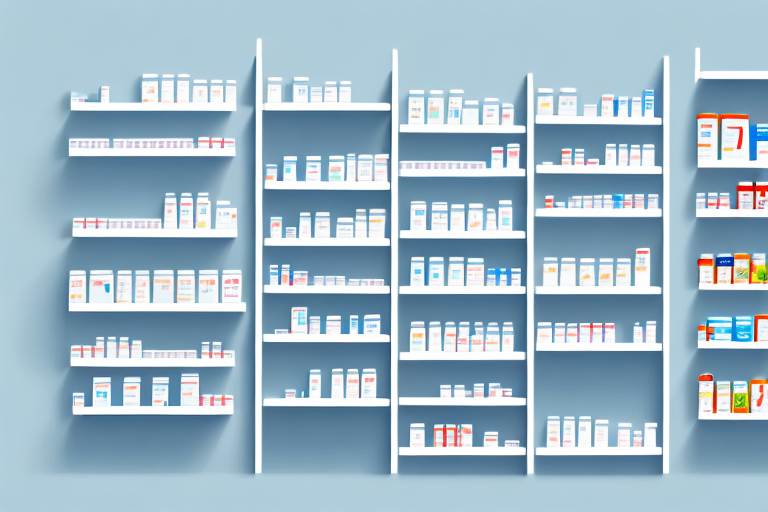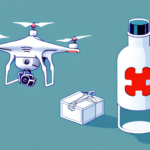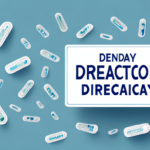Exploring the Benefits of Medicine Delivery Services
The healthcare industry has significantly evolved in the delivery of medical services. Traditionally, patients needed to visit a pharmacy in person to obtain their medications, a process that was often time-consuming and stressful. However, with the rise of medicine delivery services, patients can now receive prescription medications directly at their doorstep, eliminating the need for travel to the pharmacy. This article delves into the benefits of medicine delivery services, including their mechanisms, convenience, impact on healthcare, cost-effectiveness, accessibility, and future innovations.
How Medicine Delivery Services Operate
Medicine delivery services provide a platform for patients to order their medications online or through a mobile application. Upon placing an order, the service retrieves the prescription, packages the medication, and ships it directly to the patient’s address. This streamlined process ensures timely and consistent delivery, which is particularly beneficial for patients managing chronic conditions requiring long-term medications.
According to a U.S. Department of Health & Human Services report, medication adherence improves by up to 20% when patients utilize delivery services, highlighting the positive impact on patient health outcomes.
Enhancing Medication Adherence
Medicine delivery services play a crucial role in improving medication adherence. Patients receiving their medications through delivery services are more likely to take their medications as prescribed, reducing the risk of running out of medication or missing doses due to pharmacy accessibility issues. This is particularly advantageous for individuals with mobility issues or other health concerns that make visiting a pharmacy challenging.
The Convenience of Medicine Delivery Services
The primary advantage of medicine delivery services is the unparalleled convenience they offer. Patients can order their medications from the comfort of their homes, saving time and reducing the stress associated with traveling to a pharmacy. This convenience is especially beneficial for those living in remote areas or for individuals with limited mobility.
Additionally, medicine delivery services provide an extra layer of privacy for patients. Those who prefer discretion in obtaining medications for sensitive health conditions, such as mental health or sexual health, find delivery services to be a discreet and respectful option.
Impact on the Healthcare Industry
The introduction of medicine delivery services has positively transformed the healthcare landscape. By reducing the burden on physical pharmacies, pharmacists can focus more on patient-centered care and medication management. This shift not only enhances the quality of care but also contributes to the reduction of medication errors.
Furthermore, improved medication adherence through delivery services leads to better health outcomes, decreased hospitalizations, and lower overall healthcare costs. During the COVID-19 pandemic, medicine delivery services proved invaluable by ensuring continuous access to necessary medications despite lockdowns and social distancing measures.
Accessibility and Inclusivity
Medicine delivery services address significant accessibility issues within the healthcare system. Patients residing in rural or underserved urban areas often face challenges in accessing pharmacies. Delivery services bridge this gap by ensuring that all patients, regardless of location, have access to their required medications.
Moreover, these services support individuals with disabilities or health conditions that limit their mobility, providing them with an essential means to maintain their health without the physical barriers of traditional pharmacy visits.
Cost-Effectiveness of Medicine Delivery Services
From a financial perspective, medicine delivery services offer cost savings for both patients and healthcare providers. Patients save on transportation costs and reduce the need for taking time off work to visit a pharmacy. Providers benefit by streamlining their operations, allowing pharmacists to dedicate more time to clinical care rather than dispensing medications.
Studies indicate that improved medication adherence through delivery services can lead to significant cost reductions in healthcare by preventing complications and hospital readmissions associated with non-adherence.
Future Innovations in Medicine Delivery Services
The future of medicine delivery services is poised for significant advancements with the integration of emerging technologies. Innovations such as telemedicine-enabled prescriptions, drone deliveries, and personalized medicine are set to enhance the efficiency and effectiveness of these services.
Artificial Intelligence (AI) is being leveraged to further improve medication adherence. AI-powered chatbots can provide timely reminders, answer patient queries regarding side effects and drug interactions, and offer personalized health recommendations based on individual medical histories and lifestyles.
Choosing the Right Medicine Delivery Service Provider
Selecting an appropriate medicine delivery service provider is crucial for ensuring the reliability and quality of medication delivery. When evaluating providers, consider factors such as service coverage areas, range of medications offered, shipping options, and customer service quality. Comprehensive comparisons enable patients to make informed decisions tailored to their healthcare needs.
To make an informed choice, refer to FDA guidelines to ensure the provider is licensed and adheres to regulatory standards, ensuring the safety and efficacy of delivered medications.
In conclusion, medicine delivery services offer a convenient, accessible, and cost-effective solution to traditional medication delivery methods. By enhancing medication adherence, improving access to necessary medications, and contributing to better healthcare outcomes, these services have become an essential component of modern healthcare. With ongoing technological advancements, the future promises even more efficient and patient-centric medicine delivery solutions.
However, it is important for patients to consult with their healthcare providers when considering medicine delivery services, especially for complex medical conditions or specialized medications, and to verify that the delivery service is properly licensed and regulated to ensure the safety and quality of their medications.




















